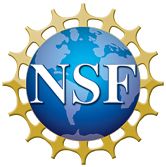Krapu et al., 2019
Gradient‐based inverse estimation for a rainfall‐runoff model
Krapu, Christopher, Mark Borsuk, Mukesh Kumar (2019)
Water Resources Research 55: 6625-6639
-
Calhoun, GRAD STUDENT
-
Calhoun, INVESTIGATOR
Plain English Summary
We programmed a rainfall‐runoff model in a software package designed for optimizing neural networks and found that this enabled application of these tools for estimating unknown parameters of our model. Using simulated data, we compared the effectiveness of two methods employing this technique with two which did not and found that the former were much more effective at estimating large numbers of unknown variables. A case study involving 25 years of data from three catchments was also performed in order to assess the viability of this approach on real‐world data.
Abstract
Recent advances in deep learning for neural networks with large numbers of parameters have been enabled by automatic differentiation, an algorithmic technique for calculating gradients of measures of model fit with respect to model parameters. Estimation of high‐dimensional parameter sets is an important problem within the hydrological sciences. Here, we demonstrate the effectiveness of gradient‐based estimation techniques for high‐dimensional inverse estimation problems using a conceptual rainfall‐runoff model. In particular, we compare the effectiveness of Hamiltonian Monte Carlo and automatic differentiation variational inference against two nongradient‐dependent methods, random walk Metropolis and differential evolution Metropolis. We show that the former two techniques exhibit superior performance for inverse estimation of daily rainfall values and are much more computationally efficient on larger data sets in an experiment with synthetic data. We also present a case study evaluating the effectiveness of automatic differentiation variational inference for inverse estimation over 25 years of daily precipitation conditional on streamflow observations at three catchments and show that it is scalable to very high dimensional parameter spaces. The presented results highlight the power of combining hydrological process‐based models with optimization techniques from deep learning for high‐dimensional estimation problems.
Citation
Krapu, Christopher, Mark Borsuk, Mukesh Kumar (2019): Gradient‐based inverse estimation for a rainfall‐runoff model. Water Resources Research 55: 6625-6639. DOI: 10.1029/2018WR024461
 This Paper/Book acknowledges NSF CZO grant support.
This Paper/Book acknowledges NSF CZO grant support.
Explore Further


